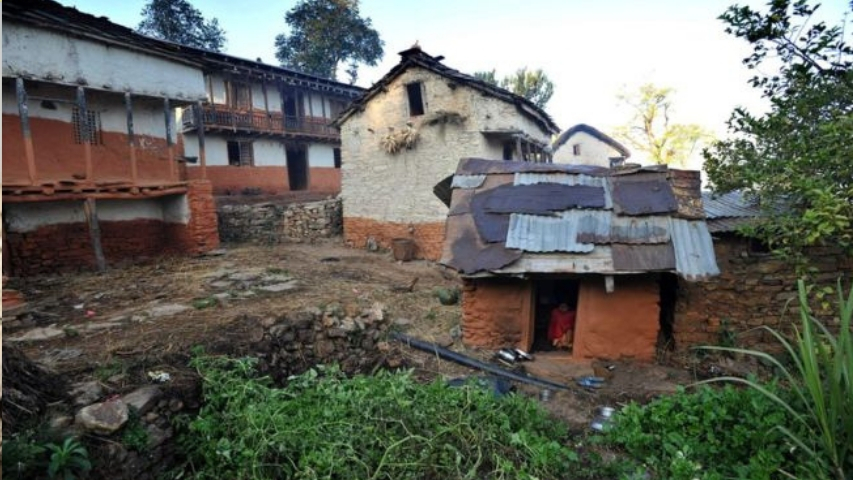-853X543.jpg)
‘Period hut’ kills a mother and her two sons in Nepal
by Shruthi Venkatesh January 15 2019, 4:36 pm Estimated Reading Time: 2 mins, 49 secsAge-old practices have considered women to be impure during menstruation. The illegal practice of Chhaupadi is a tradition associated with the menstrual taboo in the western part of Nepal which prohibits Hindu women and girls from participating in normal family activities while menstruating, as they are considered “impure”. The women are banned from the house and are required to live in a cattle shed, or a menstruation hut, a makeshift dwelling, for the duration of their period.
A recent horrifying incident was reported by The Guardian, of a woman and her two sons who suffocated to death in a windowless shed where she was instructed to stay out as she was on her menstrual period. Amba Bohara, 35- year old woman, had spent four days in the cowshed with her sons Ramit (9 yrs) and Suresh (12 yrs). On the 9th of January (Wednesday), Amba’s father-in-law discovered their bodies lying dead inside the hut.
In a statement given by the deputy police chief in western Nepal’s Bajura district, Uddhav Singh Bhat says, “The family had lit a fire to keep warm inside the freezing mud hut but were overcome by fumes, and flames had spread to their blanket.” He also said that the post-mortem results are yet to come.

Menstrual Huts (BBC)
The practice of chhaupadi originates from the superstition that menstruation causes women to be temporarily impure, based on the myth that Indra created menstruation as a means to distribute a curse. In this logic, it is believed that if a menstruating woman touches a tree, it will never again bear fruit; if she consumes milk, the cow will not give any more milk; if she reads a book, Saraswati, the goddess of education, will become angry; if she touches a man, he will be ill. It is considered to be so impure that whatever she does ends up being a misfortune.
Chhaupadi was outlawed by the Supreme Court of Nepal in 2005, but the tradition has been slow to change. In 2017, Nepal passed a law punishing people who force women into exile during menstruating with up to three months in jail or a fine of 3,000 Nepalese rupees. The tradition, associated with Hinduism, controls what a women can eat, where she sleeps and who she can interact with during her monthly cycle. Many adherents believe that disobeying the rules invites misfortune and death.
Although NGOs are advocating against the blind belief and even educating the people, most women are unable to let go the tradition because of societal norms and religion,” said Judda Bahadur Rawal, the programme manager from an advocacy group in Bajura district. Agni Shahi, NGO Federation president for Bajura, said that, despite ongoing education programmes, it had been “a real struggle to make the women let go of the belief that’s been plaguing the country”.
Till now so many deaths relating to menstrual torture has occurred in various parts, particularly in country’s poor western regions. Some have gone untold. On January 2018, a woman suffocated to death in a shed and the previous year, a teenager was bitten by a snake and lost her life. Among so many tragic incidents, still the myth is said to be in practice.





-173X130.jpg)




-173X130.jpg)
-173X130.jpg)